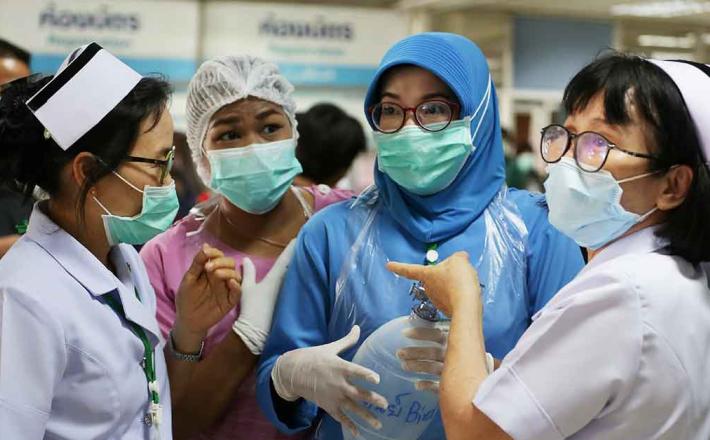Can COVID-19 close ASEAN’s gender gap?
Source: The Asean Post
While the COVID-19 crisis has upended our way of living and working, its chaos has brought with it some clarity. The rigid structures of yesterday are falling away, as more people are able to work from anywhere with an internet connection, while more generations, ethnicities and diversity define the workforce, all striving for security in a post-pandemic world.
As we overcome the crisis, the road to a brighter future will be paved with progress on many fronts – not the least of which will be achieving gender equity. Indeed, a new report from UN Women tells us that women and girls in the Asia-Pacific region have been hit harder by the disruptions of COVID-19, as they shoulder a greater burden of caring for children and sick family members, amidst greater job lay-offs and interrupted access to education.
“Response and recovery efforts must place the needs of women and girls at the centre and be grounded in the socio-economic realities that they face,” said Mohammad Naciri, UN Women Regional Director for Asia and the Pacific. For organisations in the region, achieving gender equity calls for rigorous leadership to weather the COVID-19 storm and see beyond it. It means taking a hard look at the hard data, embracing policies and practices to overcome bias in hiring and promoting women, pay inequality, along with a commitment to women’s health needs.
Click here to read the full article published by CNN on 6 November 2020.

While the COVID-19 crisis has upended our way of living and working, its chaos has brought with it some clarity. The rigid structures of yesterday are falling away, as more people are able to work from anywhere with an internet connection, while more generations, ethnicities and diversity define the workforce, all striving for security in a post-pandemic world.
As we overcome the crisis, the road to a brighter future will be paved with progress on many fronts – not the least of which will be achieving gender equity. Indeed, a new report from UN Women tells us that women and girls in the Asia-Pacific region have been hit harder by the disruptions of COVID-19, as they shoulder a greater burden of caring for children and sick family members, amidst greater job lay-offs and interrupted access to education.
“Response and recovery efforts must place the needs of women and girls at the centre and be grounded in the socio-economic realities that they face,” said Mohammad Naciri, UN Women Regional Director for Asia and the Pacific. For organisations in the region, achieving gender equity calls for rigorous leadership to weather the COVID-19 storm and see beyond it. It means taking a hard look at the hard data, embracing policies and practices to overcome bias in hiring and promoting women, pay inequality, along with a commitment to women’s health needs.
Click here to read the full article published by CNN on 6 November 2020.